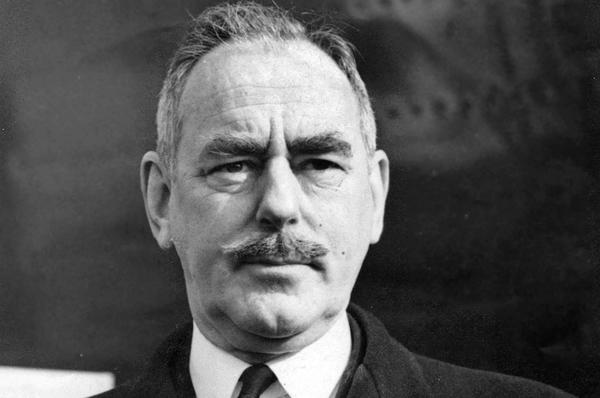North Korean dictator Kim Jong-un is rattling his sabers and threatening war against the United States. He blew up an American aircraft carrier in one propaganda video and has goaded the Trump administration in several other statements, ostensibly to create the image of manly firmness to his people. Obviously, high profile assassinations and executions along with staged videos showing Jong-un running through crowds of forced applause and mandatory groveling at his feet are not enough. North Korea does this about every twenty years. It is in the ruling family’s DNA.
But most Americans don’t understand the role North Korea played in the expansion of unconstitutional executive power in the United States nor its importance in the open ended foreign policy commitments of the twentieth century. That is the real story.
The villain in this narrative is the oft forgotten and in many cases unknown Yankee bureaucrat Dean Acheson, a man who once reportedly called Hillary Clinton a “terrific person.”
The Connecticut born and bred Acheson helped craft much of the more important foreign policy directives of the twentieth century. As assistant secretary of state, Acheson drafted the blueprint for the Lend Lease Act which, though sold as a measure to avoid war, pushed the United States only inches from armed conflict. That was Franklin Roosevelt’s plan from the beginning. As the historian Charles C. Tansill famously wrote at great cost to his career in Back Door to War, Roosevelt was uncharacteristically occupied with his stamps during the Pearl Harbor attack while George Marshall conveniently was enjoying the second most famous horseback ride in American history. The first, Paul Revere’s, helped Americans prepare for an attack. Marshall’s cost the lives of 2000 American servicemen.
Acheson led the American delegation to Bretton Woods in 1944 and was instrumental in the creation of the IMF, the World Bank, and GATT. After President Harry Truman promoted Acheson to Undersecretary of State, he further advanced the cause of globalism by designing the Marshall Plan. This was a great coup for Acheson. In 1933, Roosevelt appointed Acheson to the treasury department but he was canned because he knew little about economics. Now, the blundering Acheson not only helped establish the apparatus that would drive the world financial sector into the modern age, he involved the United States in an expensive, taxpayer funded open-ended policy of financial assistance for Europe and Asia. Everyone seemingly forgot that Acheson was a financial dolt.
More importantly, the Marshall Plan pushed United States foreign policy in a different direction and Acheson knew it. Truman handed the job of Secretary of State over to the scheming bureaucrat in 1949, and he rewarded the American people with the North Atlantic Treaty Organization, the first time since 1800 that the United States found itself in a permanent peacetime European alliance. Former Secretary of State George Kennan worried that Acheson was trying to militarize the Cold War. He was correct. In 1950, Acheson favored the findings of NSC-68, a paper that called for the massive expansion of both American military spending and the CIA. Until that point, the CIA was a relatively innocuous intelligence gathering organization. That quickly changed in the 1950s as the CIA was given a fresh influx of cash and secret powers. Without Acheson, the Dulles brothers would never have had the power to reshape American foreign policy during the Eisenhower years and beyond.
Acheson, in fact, was the mastermind of the Cold War. He convinced Truman of the necessity of “containment” and the importance of halting North Korean aggression in 1950. This led to the “Truman Doctrine,” the Korean War, and Truman’s bizarre speech before the Congress calling for Americans to pay more taxes and accept bigger government and less freedom because that would help bring about the fall of communism. The Politburo could not have written it better.
That brings us full circle to 2017. The Korean War was not only unnecessary, it led to a major policy shift for the United States. Vietnam followed Korea, and American meddling in the Middle East was a direct result of Acheson’s ongoing fear of globalist communist aggression. We are living in a Cold War world without the Cold War. It is the gift that keeps on giving and Acheson was Santa Claus.
Acheson’s story is emblematic of destructive Yankee influence in America. Their “city upon a hill” mentality has permeated every vestige of mainstream political thought, but most conspicuously in the neo-conservative faction of the Republican Party. This is not to say that Southerners were always anti-imperialists or correct in their public positions—far from it—but is always certain that Yankees will pursue the path of obnoxious intervention under the false notion of “humanity” guided by the “treasury of counterfeit virtue.” Americans should be divesting themselves of this type of Yankee thinking. Unfortunately, it seems we are rushing to embrace it.







